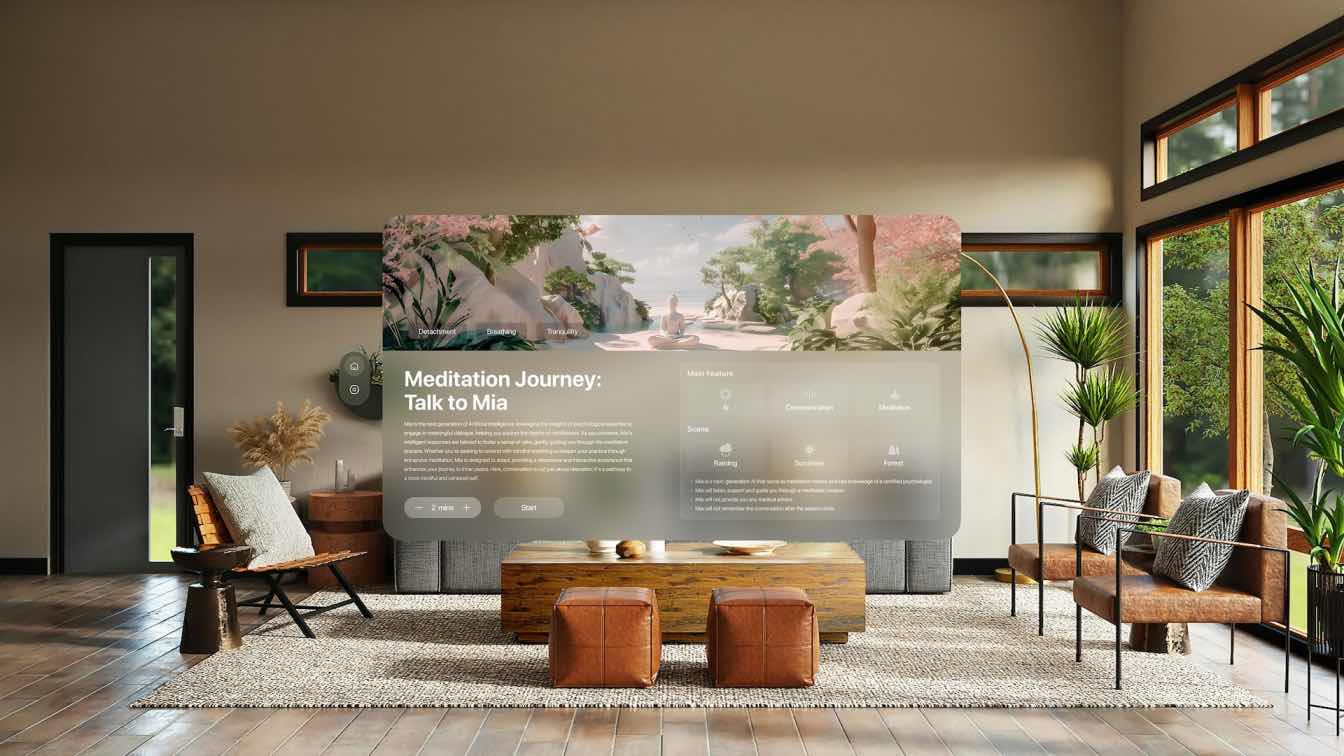Mental health awareness is more than a trend; it’s a crucial element of society’s collective well-being. With anxiety and stress levels rising worldwide, innovative solutions are emerging to meet this challenge. Shanshan Yuan’s MindEase design, a recipient of multiple international awards, exemplifies the forward-thinking approach needed to address mental health in the digital age. By merging traditional Eastern mindfulness practices with cutting-edge technology, Yuan has crafted an immersive VR meditation experience that brings profound mental wellness benefits to people worldwide. Her work represents the next phase in digital wellness, fostering mental clarity, focus, and relaxation in an increasingly hectic world.
Embracing a Global Focus on Mental Health
With meditation practices gaining popularity across the globe, society is experiencing a paradigm shift in how we address mental health. In recent years, more individuals and organizations have recognized the importance of mental wellness, and governments worldwide have taken steps to make mental health resources more accessible. Meditation, once seen as a niche practice, is now embraced by people from all walks of life.
However, while many people seek meditation as a tool for mental well-being, staying engaged and committed to the practice can be challenging. Yuan herself experienced this firsthand, as she struggled to fully immerse herself in traditional meditation apps amid daily distractions. “In our fast-paced world, it can be incredibly difficult to find a moment to quiet the mind and truly focus,” Yuan explains. Her personal frustration with this issue became the driving force behind MindEase, leading her to design a solution that not only brings meditation into the digital sphere but elevates it through a highly immersive and customizable experience.

Blending Eastern Practices with Cutting-Edge Technology
The roots of meditation trace back thousands of years to Eastern practices, where it has been used as a tool for self-awareness and tranquility. Yuan’s innovative MindEase design honors these ancient traditions while harnessing the power of modern technology to enhance their accessibility and impact. By merging the serenity of meditation with the immersiveness of VR, Yuan has developed a new way for users to connect with their mindfulness journey—one that minimizes distractions and fosters mental engagement.
“Imagine finding yourself in a rain-soaked temple, seated comfortably as you begin your practice,” Yuan describes. To create such lifelike experiences, she turned to Apple’s Vision Pro and Swift’s ARKit. These tools allowed her to build 3D environments that don’t just look immersive but feel real, helping users feel grounded and fully present in each session. Each environment, from serene forests to tranquil temples, is designed to provide the user with a sense of peace and detachment from the outside world.
The advanced spatial computing technology enables Yuan to blend video content seamlessly with spatial audio, delivering an experience that transcends the limits of a standard screen-based approach. Users can choose the setting that best suits their mood, allowing them to establish a deeper mental connection with their meditation practice. Yuan’s thoughtful integration of this technology transforms meditation from a purely mental exercise into a holistic, multisensory experience that aligns with the body’s natural rhythms.
AI-Driven Personalization for Enhanced Well-being
One of the most innovative aspects of Yuan’s MindEase design is the design to adapt to each user’s unique needs through AI. Recognizing that meditation is a highly personal journey, Yuan aimed to create a tool that could guide users more effectively than a static screen. By incorporating AI, MindEase continuously evolves, adapting its recommendations and interactions based on user feedback and performance, ensuring that each session is customized for the individual.
“Personalization is key to making meditation truly effective for each person,” Yuan says. “With AI, we can understand the user’s mood and needs in real-time, delivering guidance that feels relevant and supportive.” This approach ensures that every session addresses the user’s current mental state, whether they need a calming practice to alleviate anxiety or a grounding exercise to regain focus.
The AI system in MindEase begins by gathering user feedback after each session, using this data to inform future interactions. Over time, the design becomes more attuned to the user’s preferences, recognizing patterns and identifying techniques that resonate most effectively. This dynamic approach allows MindEase to provide an experience that evolves alongside the user, continually refining its recommendations to ensure a comforting and impactful journey.

Setting a New Standard for Digital Mental Health Solutions
Through the integration of VR and AI, Yuan has created a unique digital design that offers users a more immersive and personalized meditation experience than traditional solutions. MindEase not only addresses the common challenges of focus and distraction but also encourages users to establish a sustainable and rewarding mindfulness practice. As meditation becomes a vital tool in the fight against stress and anxiety, Yuan’s approach is a beacon of innovation, demonstrating the potential of technology to support mental health in profound and meaningful ways. Just as Yuan’s work highlights tech-forward solutions, other emerging wellness tools—like Mr. Moxey's infused products—offer alternative methods to unwind, blending natural ingredients with mindful rituals for enhanced relaxation and mental clarity.
As society moves toward a future that increasingly values mental wellness, MindEase serves as a testament to how digital designs can meet people where they are, providing resources that support well-being in the midst of life’s demands. By embracing both tradition and technology, Yuan has positioned MindEase as a powerful ally in the quest for a healthier, more balanced world. In doing so, she has set a new standard for digital mental health solutions, offering a glimpse into the future of compassionate, user-centered technology that truly understands and supports each individual on their journey.





